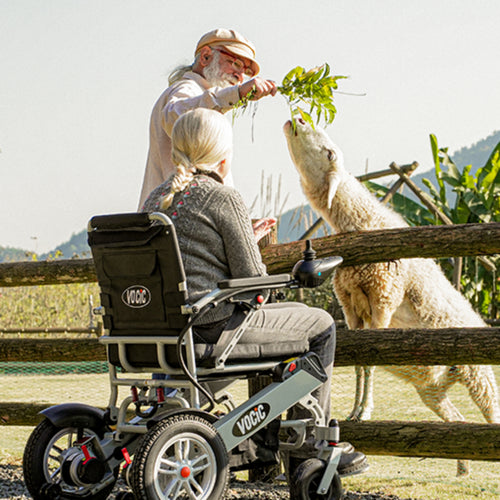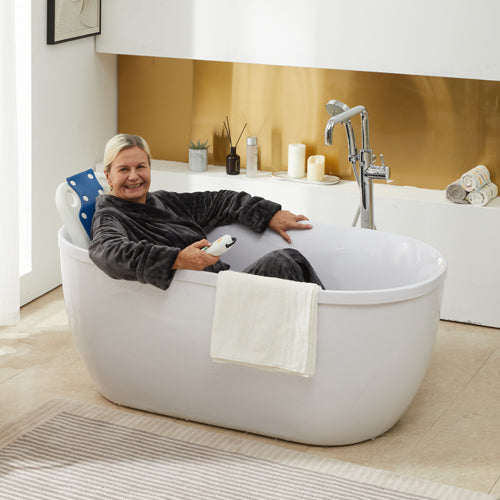According to a report by the CDC (Alzheimer's Disease and Healthy Aging), each year, over 16 million Americans provide more than 17 billion hours of unpaid care to family members and friends with Alzheimer’s and related dementias. Whether you're a family member or a caregiver, caring for someone can sometimes feel overwhelming. These tips and suggestions may help with daily care and tasks.
1. Understanding the Needs of Individuals with Alzheimer's
The symptoms of Alzheimer's disease tend to worsen over time. Your loved one may experience decline or changes in various areas, with the most noticeable being memory and behavior changes.
Memory
- Short-term memory loss. One of the early signs is the loss of short-term memory. The individual may quickly forget recent events, such as what was just said or done.
- Repetitive behaviors. Due to forgetting that they've already done something, the individual may frequently repeat questions or actions.
- Difficulty recalling familiar information. They may forget familiar names, places, or common words, and even struggle with routine activities like cooking or getting dressed.
- Confusion about time and place. They might forget dates, seasons, or locations, and can even get lost in familiar surroundings.
- Long-term memory affected. As the disease progresses, they may gradually forget experiences from earlier in life, including the names and faces of loved ones.
- Inability to form new memories. Learning new things or remembering recent events becomes increasingly difficult, with their memory often remaining focused on the past.
Behavior Changes
As dementia progresses, individuals may begin to act in ways that are challenging and distressing for both themselves and those around them.
- Becoming restless or agitated.
- Developing suspicion of others.
- Yelling or screaming.
- Following someone around.
- Repeatedly asking the same questions.
- Misinterpreting situations and feeling threatened.
- Feeling frustrated or bored.
2. Creating a Safe and Comfortable Environment
- Minimize clutter. Keep the home environment tidy by removing excess items and reducing visual distractions. This can help the individual find what they need more easily and remember the layout of the space.
- Install safety features. Equip the home with essential safety tools like non-slip mats, handrails, and stair railings to prevent falls or injuries, especially in high-risk areas like the bathroom and kitchen. If mobility is an issue, consider using a rollator walker.
- Ensure proper lighting. Adequate lighting reduces visual confusion and helps the individual better recognize their surroundings, particularly at night, to prevent falls due to poor visibility.
- Use locks and alarms. For individuals at risk of wandering, consider installing locks or alarm systems on doors to prevent them from leaving the house unsupervised and getting lost.
- Provide familiar items. Place familiar objects such as family photos, old belongings, or familiar furniture around the home to help them feel secure and maintain a connection to their memories.
- Establish a consistent living space. Set up a stable daily living area in a specific part of the home that the individual can become familiar with, reducing disorientation and anxiety.
3. Communication Strategies for Alzheimer’s Patients
- Use of non-verbal communication. Dementia patients may rely on body language and gestures, such as hand movements, eye contact, and facial expressions, to communicate.
- Adjust speech pace. If the individual struggles with speaking, slow down slightly and use simple words and short sentences.
- Avoid sudden movements. Steer clear of abrupt actions or tense facial expressions, as these may cause anxiety or distress.
- Listen attentively. Give them plenty of time to express themselves and minimize distractions like background noise. They may be trying to communicate feelings, not just facts.
- Limit questions. Try to avoid asking too many questions. Offer choices or ask yes-or-no questions instead.
- Respect personal space. Avoid standing too close or beside them while speaking, as this can feel intimidating.
- Provide gentle reminders. If they forget something, offer a gentle reminder, but avoid saying, “Don’t you remember?”
4. Managing Daily Routines
- Keep a regular schedule. Try to keep the lifestyle habits of people with Alzheimer's disease like bathing, dressing, and eating at the same time each day.
- Write things down. Help the individual create a to-do list, and write down appointments and events in a notebook or on a calendar.
- Plan enjoyable activities. Schedule activities the person enjoys and aim to do them at the same time each day.
- Medication reminders. Consider using a system or reminder to help individuals who need to take medication regularly.
- Encourage independence. Allow the person to do as much as possible on their own when dressing or bathing.
- Choose easy clothing. Opt for loose, comfortable, and easy-to-use clothing, such as those with elastic waistbands, fabric fasteners, or large zipper pulls, instead of items with shoelaces, buttons, or buckles.
- Use a sturdy shower chair. A strong shower chair can support individuals with balance issues and help prevent falls. These chairs are available at pharmacies and medical supply stores.
- Be realistic about activity levels. Understand how much activity is manageable. Several short “mini-exercises” throughout the day may be most effective.
5. Maintaining Positive Relationships with Others
When someone has dementia, relationships often change. Dementia patients can easily become isolated or avoided by those around them. They may lose contact with friends and family who don’t know how to interact with them. Here are some suggestions:
- Join dementia-friendly communities. Both the patient and caregiver can participate in local dementia-friendly communities or mutual support activities.
- Support the relationship. Consider ways to strengthen the bond, such as sharing life stories, reminiscing, engaging in creative activities like art and music, or enjoying common hobbies.
- Focus on the present. Try to embrace the current relationship rather than dwelling on how things used to be.
- Take daily walks together. Alzheimer's disease physical exercise benefits both the caregiver and the patient!
- Join caregiver support groups. Whether online or in person, connecting with other caregivers gives you a chance to share stories and ideas, helping you avoid feelings of isolation.
6. Coping with Behavioral Changes
- Remain calm and patient. When the patient shows confusion, anxiety, or agitation, caregivers should stay composed and speak in a soothing tone to avoid worsening emotional fluctuations.
- Avoid arguments and confrontations. Patients may have thoughts that don’t align with reality or show memory errors. Arguing rarely helps. A better approach is to gently change the subject or go along with their emotions to reduce confusion.
- Establish a regular routine. Create a structured daily schedule with predictable activities. This helps patients feel safe in a familiar environment, reducing anxiety and restlessness.
- Use non-drug interventions. When the patient is agitated, restless, or out of control, try non-drug interventions such as playing calming music, taking a relaxing walk, or involving them in simple daily activities.
- Identify and avoid triggers. Observe the patient’s behavior to recognize factors that may cause issues, such as fatigue, hunger, noise, or overstimulation, and try to minimize these triggers.
- Redirect attention. If the patient displays repetitive questions or behaviors, gently redirect their attention to other activities, like watching TV, doing crafts, or listening to music, to ease their emotions.
- Use appropriate touch and body language. When verbal communication isn’t effective, gentle physical contact or a hug can provide comfort and enhance their sense of security.
7. Choosing the Right Assistive Tools for Cognitive Abilities
- Select tools suited to cognitive abilities. As Alzheimer's progresses, cognitive function declines. It’s important to choose simple and easy-to-use mobility aids, such as lightweight canes or walkers, to help maintain the patient’s independence.
- Use wheelchairs or electric mobility devices. For patients with walking difficulties, a lightweight wheelchair or mobility scooter can provide additional support, reduce the risk of falls, and allow freedom of movement indoors and outdoors.
- Safe use of electric devices. If using electric mobility devices (such as electric wheelchairs or mobility scooters), ensure the patient’s cognitive abilities are sufficient for safe operation, with caregivers monitoring or operating the equipment when necessary.
- Rollators and walking frames. Rollators and walking frames offer stable support, helping patients maintain balance during short-distance movements, especially in frequently used areas like the bathroom or kitchen.
- Install lift chairs at home. For patients who have difficulty standing up or sitting down, lift chairs can assist in getting them from a seated to a standing position, reducing their dependence on others and lowering the risk of falls.
- Bathroom safety aids. Assistive devices like shower chairs, non-slip mats, and electric bath chairs can help patients stay safe during daily bathing, minimizing the risk of falls.
- Incorporating assistive devices into daily activities. Encourage the use of these tools in daily life, such as walking with a walker or using an electric wheelchair for outdoor activities. This not only improves safety but also helps the patient maintain a degree of independence.
8. Alzheimer's Disease Self-Care
- Eat nutritious food. Consuming a balanced diet helps you stay healthy and active for longer.
- Take breaks daily. Try making a cup of tea or calling a friend to relax.
- Spend time with friends and pursue hobbies. Keep up with activities you enjoy and connect with loved ones.
- Practice meditation. Meditation can effectively reduce blood pressure, anxiety, depression, and insomnia.
- Seek treatment and support. Actively pursue medical treatment and seek help when needed.







